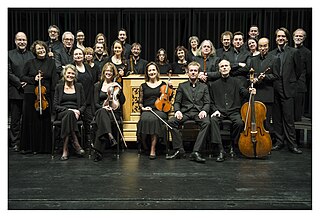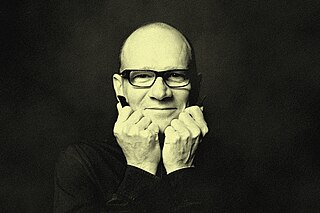The Chœur d'Oratorio de Paris (Oratorio choir of Paris) is a French mixed choir, funded in 1989 by Jean Sourisse.
An oratorio is a large musical composition for orchestra, choir, and soloists. Like most operas, an oratorio includes the use of a choir, soloists, an instrumental ensemble, various distinguishable characters, and arias. However, opera is musical theatre, while oratorio is strictly a concert piece – though oratorios are sometimes staged as operas, and operas are sometimes presented in concert form. In an oratorio the choir often plays a central role, and there is generally little or no interaction between the characters, and no props or elaborate costumes. A particularly important difference is in the typical subject matter of the text. Opera tends to deal with history and mythology, including age-old devices of romance, deception, and murder, whereas the plot of an oratorio often deals with sacred topics, making it appropriate for performance in the church. Protestant composers took their stories from the Bible, while Catholic composers looked to the lives of saints, as well as to Biblical topics. Oratorios became extremely popular in early 17th-century Italy partly because of the success of opera and the Catholic Church's prohibition of spectacles during Lent. Oratorios became the main choice of music during that period for opera audiences.
Jean Sourisse is a French choral conductor. He successively founded and directed the vocal ensemble Audite Nova, the choir of the Concerts Colonne, the vocal Ensemble Jean Sourisse, and the Chœur d'Oratorio de Paris.
Contents
After forming the Chœur of the Concerts Colonne orchestra and conducting it for seven years, Jean Sourisse created the Chœur d'Oratorio de Paris in November 1989; the Chœur today consists of 70 to 80 experienced but non-professional singers.
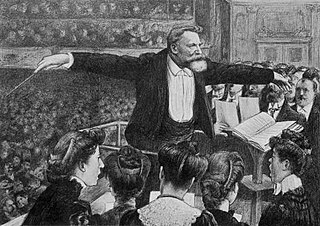
The Colonne Orchestra is a French symphony orchestra, founded in 1873 by the violinist and conductor Édouard Colonne.
The Chœur d’Oratorio de Paris addresses the repertoire best suited to its size and vocation: masses, motets, Requiem and oratorios by Bach, Haydn, Mozart, Mendelssohn, Brahms, César Franck, Gabriel Fauré, Maurice Duruflé, Francis Poulenc, without neglecting the secular repertoire of the 19th and 20th centuries: Schumann, Berlioz, Ravel and many others.

The mass, a form of sacred musical composition, is a choral composition that sets the invariable portions of the Eucharistic liturgy to music. Most masses are settings of the liturgy in Latin, the liturgical sacred language of the Catholic Church's Roman liturgy, but there are a significant number written in the languages of non-Catholic countries where vernacular worship has long been the norm. For example, there are many masses written in English for the Church of England. Musical masses take their name from the Catholic liturgy called "the mass" as well.
In western music, a motet is a mainly vocal musical composition, of highly diverse form and style, from the late medieval era to the present. The motet was one of the pre-eminent polyphonic forms of Renaissance music. According to Margaret Bent, "a piece of music in several parts with words" is as precise a definition of the motet as will serve from the 13th to the late 16th century and beyond. The late 13th-century theorist Johannes de Grocheo believed that the motet was "not to be celebrated in the presence of common people, because they do not notice its subtlety, nor are they delighted in hearing it, but in the presence of the educated and of those who are seeking out subtleties in the arts".

A Requiem or Requiem Mass, also known as Mass for the dead or Mass of the dead, is a Mass in the Catholic Church offered for the repose of the soul or souls of one or more deceased persons, using a particular form of the Roman Missal. It is usually, but not necessarily, celebrated in the context of a funeral.
Since its creation, the Choir has been hired by Jean-Claude Malgoire's La Grande Écurie et la Chambre du Roy (Festival des instruments anciens and Festival de la Chaise-Dieu in 1990), and the Orchestre de chambre de Paris , then conducted by Armin Jordan, orchestras with which the Choir has had the opportunity to collaborate many times since then.
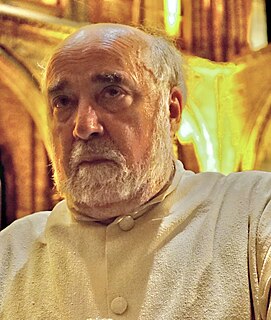
Jean-Claude Malgoire was a French conductor.
La Grande Écurie et la Chambre du Roy is a French musical ensemble that performs using period instruments. The group was founded in 1966 by Jean-Claude Malgoire. While the ensemble has performed a wide repertoire from a variety of musical periods, the group has drawn particular acclaim for their performances of baroque music and the works of Wolfgang Amadeus Mozart. The group has toured 5 continents and has made more than 100 recordings. The ensemble's recording of Antonio Vivaldi's Motezuma was awarded the Victoires de la musique classique in 1992. Their recording of Vivaldi's Vêpres pour la Nativité de la Vierge won the Grand Prix du Disque. The ensemble is supported financially by the France's Ministry of Culture.
Armin Jordan was a Swiss conductor known for his interpretations of French music, Mozart and Wagner.
Since then, he has participated in numerous productions, being regularly invited by the greatest conductors: (Colin Davis, James Conlon, Theodor Guschlbauer, Jean-Claude Malgoire, John Nelson, Alberto Zedda, Marek Janowski, Tamas Vasary, Jerzy Semkow, Jacques Mercier ) and is associated with renowned soloists including Lucia Valentini Terrani, Maria Bayo, Barbara Hendricks, Nathalie Stutzmann, Sandrine Piau, Laurent Naouri, François Le Roux, José Cura…

Sir Colin Rex Davis was an English conductor, known for his association with the London Symphony Orchestra, having first conducted it in 1959. His repertoire was broad, but among the composers with whom he was particularly associated were Mozart, Berlioz, Elgar, Sibelius, Stravinsky and Tippett.
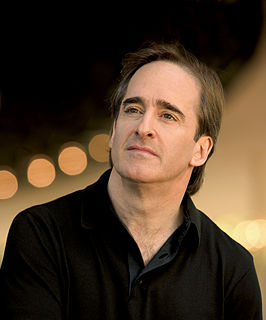
James Conlon is an American conductor of opera, and symphonic and choral works. He is Music Director of Los Angeles Opera and Principal Conductor of the Italian RAI National Symphony Orchestra. He was the long serving director of the two-week Cincinnati May Festival from 1979 through 2016. From 2005 to 2015, he was music director at the Ravinia Festival, the summer home of the Chicago Symphony Orchestra. He is known for his efforts in reviving music by composers suppressed during the Nazi regime.
Theodor Guschlbauer is an Austrian conductor.
The Chœur d’Oratorio de Paris has been invited on numerous occasions since 1992 by the Festival de Saint-Denis, [1] and is collaborating on this occasion with the Orchestre National de France and the Orchestre Philharmonique de Radio France as well as the Orchestre de chambre de Paris.
The Orchestre national de France is a French symphony orchestra based in Paris, founded in 1934. Placed under the administration of the French national radio, the ONF performs mainly in the Théâtre des Champs-Élysées from where all its concerts are broadcast. Some concerts are also held in the Salle Olivier Messiaen in the Maison de Radio France.
It performed Gounod's St. Cecilia Mass in June 2004, as well as Schubert's Mass in E-flat, Gabriel Fauré's Requiem in June 2003, under the direction of John Nelson.
In 2005, it was again under the direction of John Nelson that the Chœur d'Oratorio de Paris gave Beethoven's Ninth Symphony in concert at the Théâtre des Champs-Élysées in Paris, and in Reims for the opening concert of the "flâneries musicales ". It then recorded the work as part of a complete discography of the nine symphonies, published in December 2006 by Ambroisie.
The choir also performs annually under Sourisse's direction, works such as Liszt's Missa Choralis , Ein deutsches Requiem by Brahms, the Requiem by Alfred Desenclos, Duruflé's Requiem, Bach's Mass in B minor, Mendelssohn's Psalms, Jean-Joseph de Mondonville's Grand motet, and Marc Antoine Charpentier's Grand motet.
